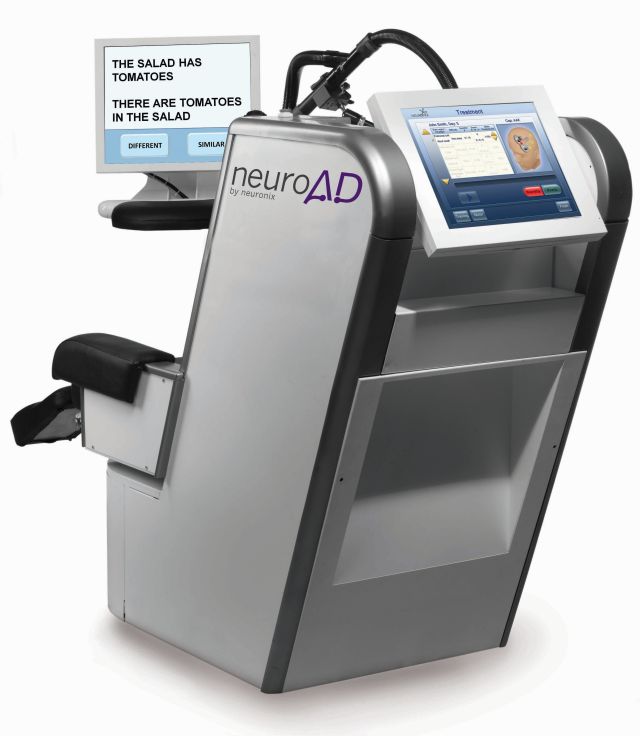–
–
Will you offer us a hand? Every gift, regardless of size, fuels our future.
Your critical contribution enables us to maintain our independence from shareholders or wealthy owners, allowing us to keep up reporting without bias. It means we can continue to make Jewish Business News available to everyone.
You can support us for as little as $1 via PayPal at office@jewishbusinessnews.com.
Thank you.
The company’s technology has been proven effective in clinical trials conducted in Harvard University (United States) and in Israel. The clinical trials have shown the technology to be more effective than current medication, and have proven its safety also when used in combination with existing treatments. Additionally, a slower degenerative progression was observed over time, while the treatment can be repeated every 9-12 months.
The company has identified 6 regions in the human brain, each responsible for a significant part in its cognitive functioning. Using the NeuroAD device, daily treatment is carried out, using precise and timed combination of electromagnetic pulses and cognitive tasks. The stimulation and exercise have been developed to simultaneously affect the same area in the brain.
The treatment is six weeks long, and it consists of five daily one-hour sessions per week. The treatment is currently available in Hebrew, English, all major European languages, as well as several Asian languages, to enable each patient to undergo the treatment in their mother tongue. The system monitors the patient’s performance and adjusts the stimulation level according to their abilities.
NeuroAD is approved for marketing in Israel, and CE approved for marketing in Europe. In April 2013, the company has commenced a trials, in the United States, conducted in leading Alzheimer Centers, according to an FDA-approved protocol, in order to receive FDA approval.
The device is available today in a few countries in Asia and Europe..
Alzheimer’s disease is incurable, and it is one of the most expensive diseases for health systems worldwide, with annual expenses estimated at 600 billion dollars. The number of AD patients globally is 30-35 million, and this number is expected to double by 2030.





